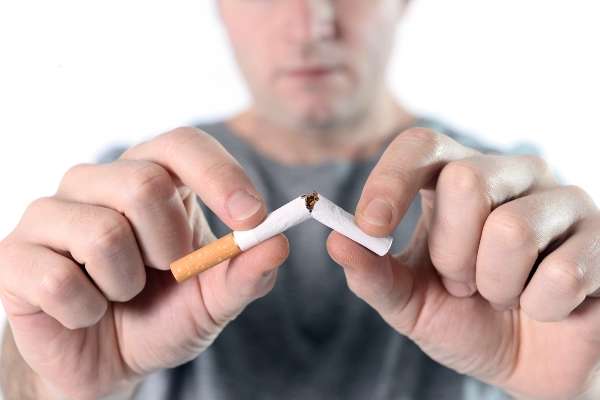 The field of general dentistry involves taking care of the whole mouth, not only the teeth. Tobacco use is dangerous to your overall well-being, but your oral health is particularly at risk. When you smoke, your mouth is the first place that the nicotine and tar go. A general dentist sees firsthand the damage that smoking does inside your mouth and can explain what happens.
The field of general dentistry involves taking care of the whole mouth, not only the teeth. Tobacco use is dangerous to your overall well-being, but your oral health is particularly at risk. When you smoke, your mouth is the first place that the nicotine and tar go. A general dentist sees firsthand the damage that smoking does inside your mouth and can explain what happens.
How does smoking affect general dentistry?
When you go for a dental checkup, the dentist or hygienist may be able to show you the effects that smoking has on your oral health. Here are some of the issues they are likely to bring up when encouraging you to quit using tobacco.
Oral cancer
Tobacco is a carcinogen, and since the tissues of your mouth absorb a lot of the nicotine, smoking can put you at greater risk for developing oral cancer. This type of malignancy is more likely to prove fatal if its spreads. Treatment is easier if it is caught in the early stages. If you smoke, regular dental checkups are vital because oral cancer screening can detect malignancies in their earliest stages.
Gum disease
Tobacco use negatively affects blood flow to your gums. This makes them more vulnerable to infection and, if they do get infected, prevents them from healing. The College of Dental Hygienists of Ontario cites a study conducted in the United States showing that tobacco use was a factor in over half of all severe gum disease cases.
Tooth shifting or loss
An infection of the gums can develop into more serious periodontal disease, affecting not only the gums but the jawbone. Since these are the structures that hold the teeth in place, smoking can cause them to shift positions and possibly fall out completely.
Tartar buildup
Smoking contributes to the buildup of plaque on your teeth, which can harden into tartar. Plaque and tartar increase the risk of tooth decay and cavities.
Tooth staining
Tooth enamel is a porous material with a lot of tiny holes that can let chemicals in. The tar contained in cigarette smoke can get into these holes and permanently stain your teeth.
How does smoking affect general health?
Smoking negatively affects almost every system in your body. The effects on your oral health are more easily observable, but the effects on your internal organs are at least as serious.
Cardiovascular disease
Tobacco use damages the heart and blood vessels, putting you at greater risk for heart attack or stroke.
Respiratory illness
Smoking damages the tissues of the lungs and prevents them from functioning properly. This can lead to conditions such as chronic bronchitis and emphysema, which together fall under the category of chronic obstructive pulmonary disease. Smoking also increases the risks of tuberculosis and lung cancer.
Other chronic diseases
Smoking can increase the risk for rheumatoid arthritis and other disorders of the immune system. It can contribute to certain eye disorders and cause or complicate other chronic diseases, such as diabetes.
Conclusion
While smoking is dangerous to your overall health, its negative effects from the standpoint of general dentistry may be the most obvious.
Request an appointment or call Midtown General & Cosmetic Dentistry at 704-307-4525 for an appointment in our Charlotte office.
Related Posts
Bad breath can be easily addressed by general dentistry practices — but some patients try to hide the problem with strongly flavored toothpaste, mouthwashes, or breath mints. Bad breath can represent a problem with oral health, and it sometimes points to significant gum disease. Learn more below about the causes of bad breath and how…
Many people have anxiety regarding going to the dentist. General dentistry visits can be easier if you have some tools to ease your nerves and get through your appointment with minimal stress. Fortunately, there are ways to ensure that you are calmer during dental or other medical appointments.A significant number of people fear going to…
Good oral health does not just require strong, clean teeth; it is the result of numerous tissues and systems working together. Saliva plays a particularly important role in general dentistry. This fluid is essential for a healthy mouth and body.The human body is continuously producing saliva. In a healthy adult, it is normal to create…
